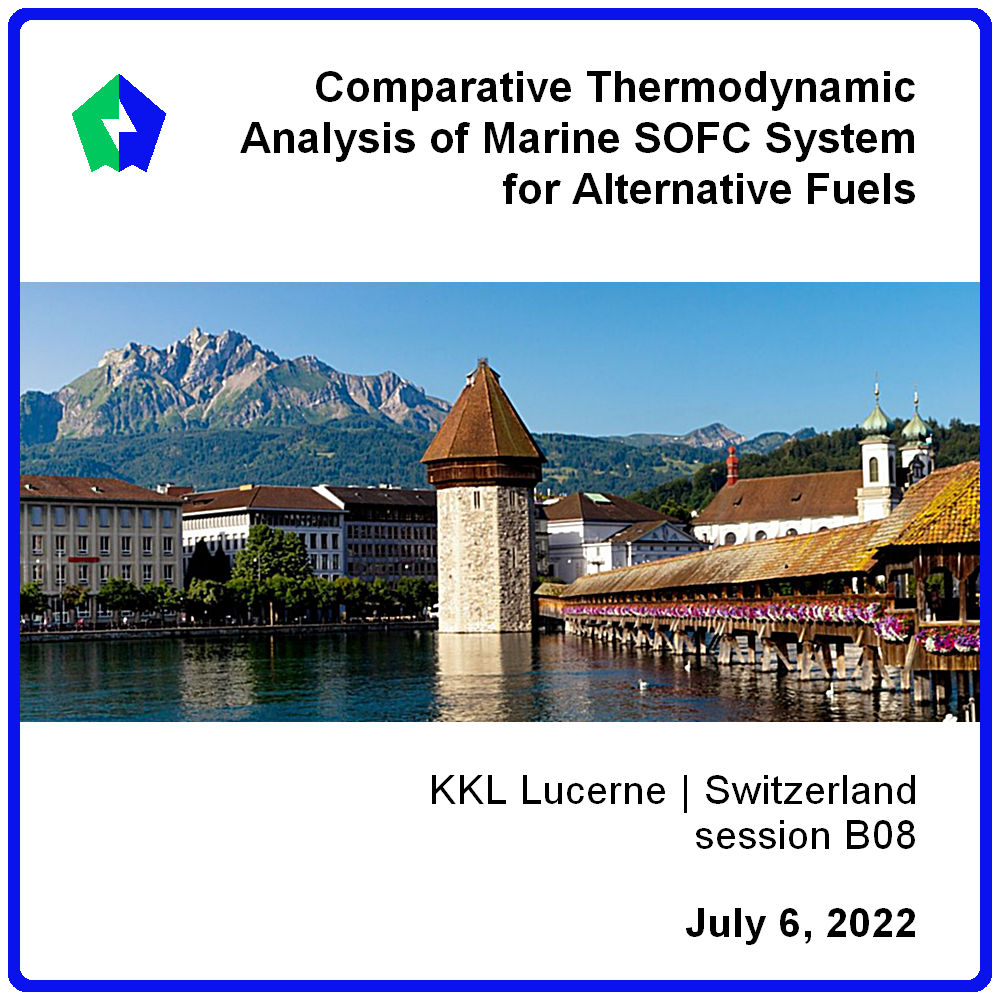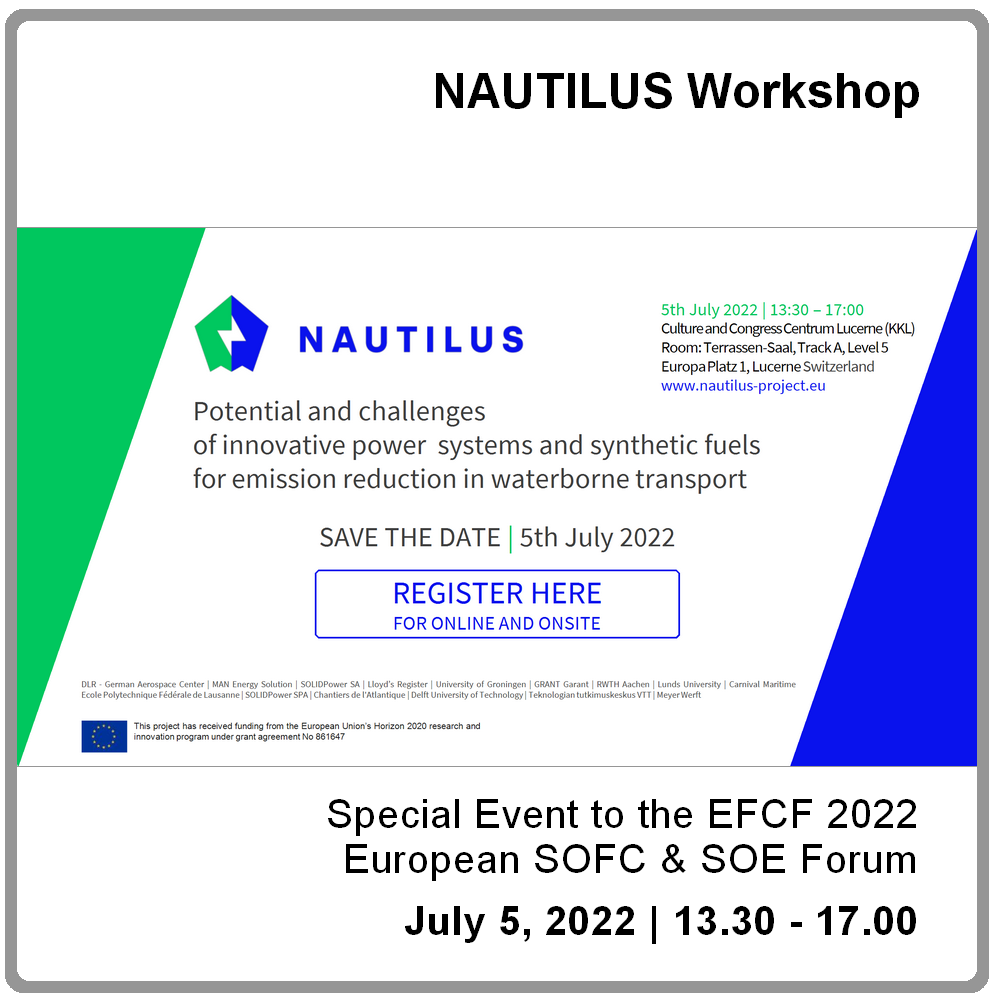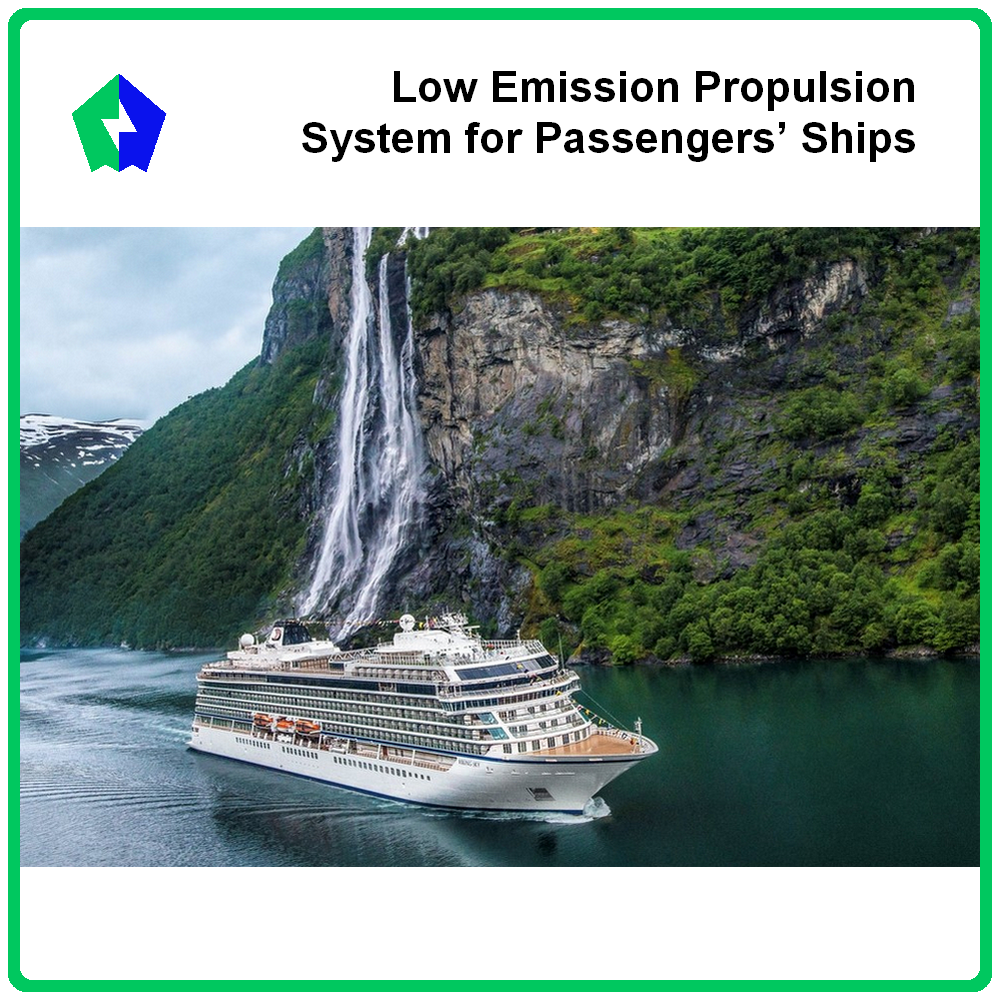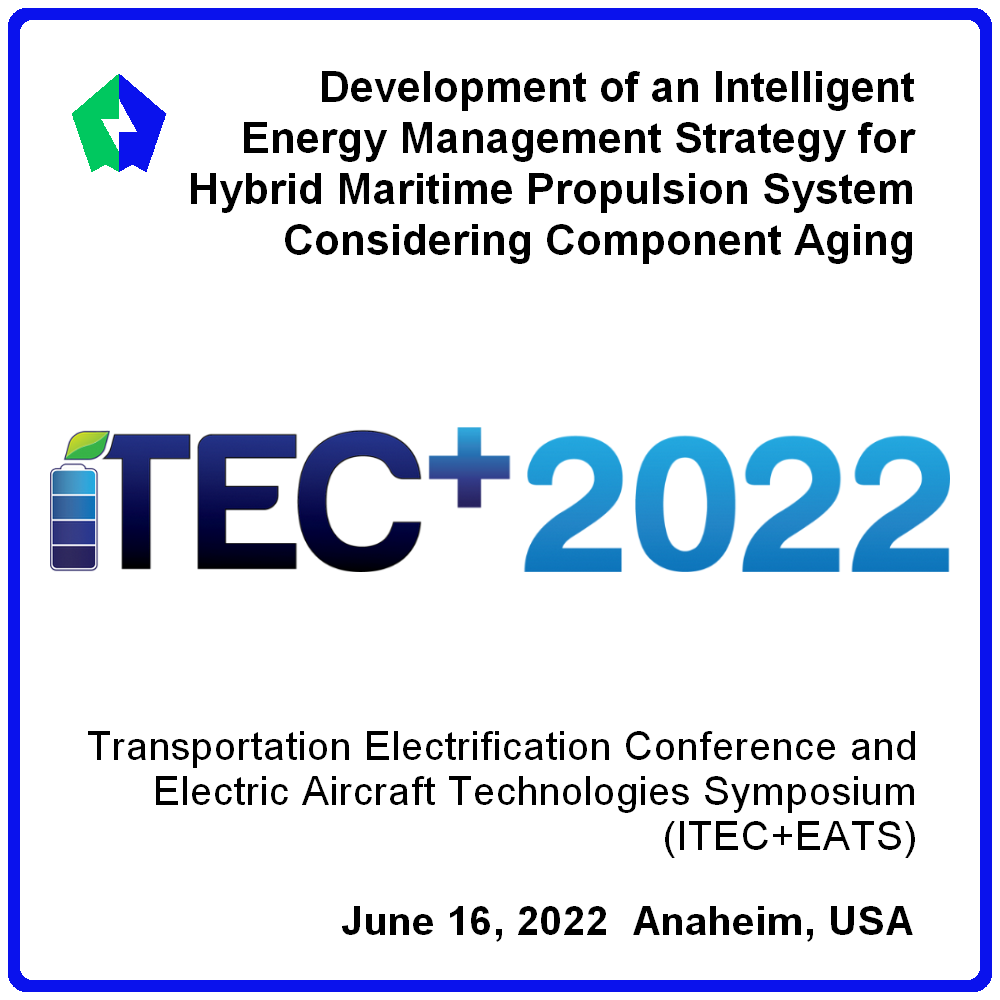Berend van Veldhuizen from Delft University of Technology (TUD) will present a part of the Nautilus project at EFCF 2022 conference that will be held in Lucerne in Switzerland on 5th – 8th July 2022.
His presentation on 6th July at Stack & System Modelling session (session B08) will focus on Comparative thermodynamic analysis of marine SOFC system for alternative fuels.




